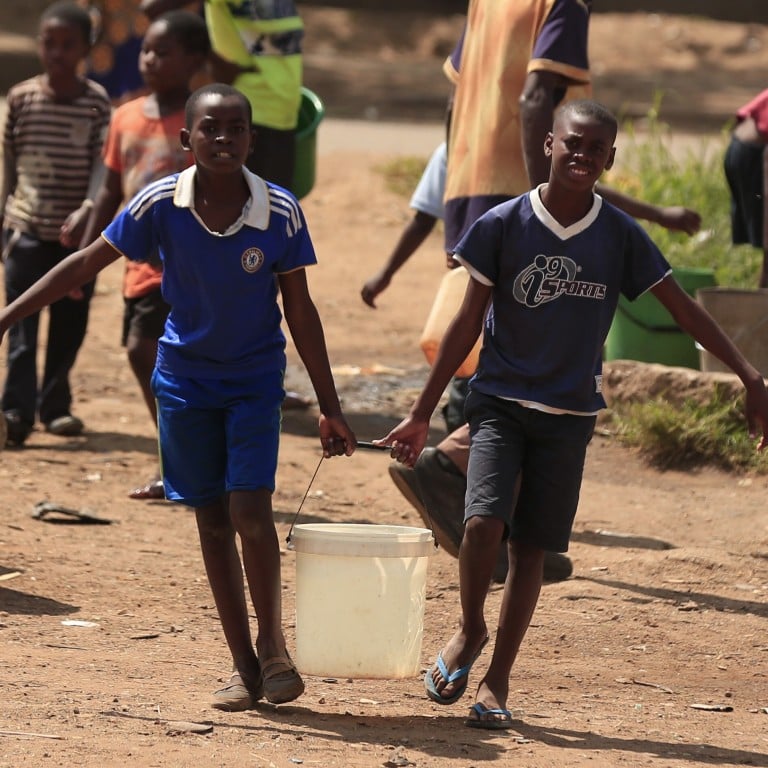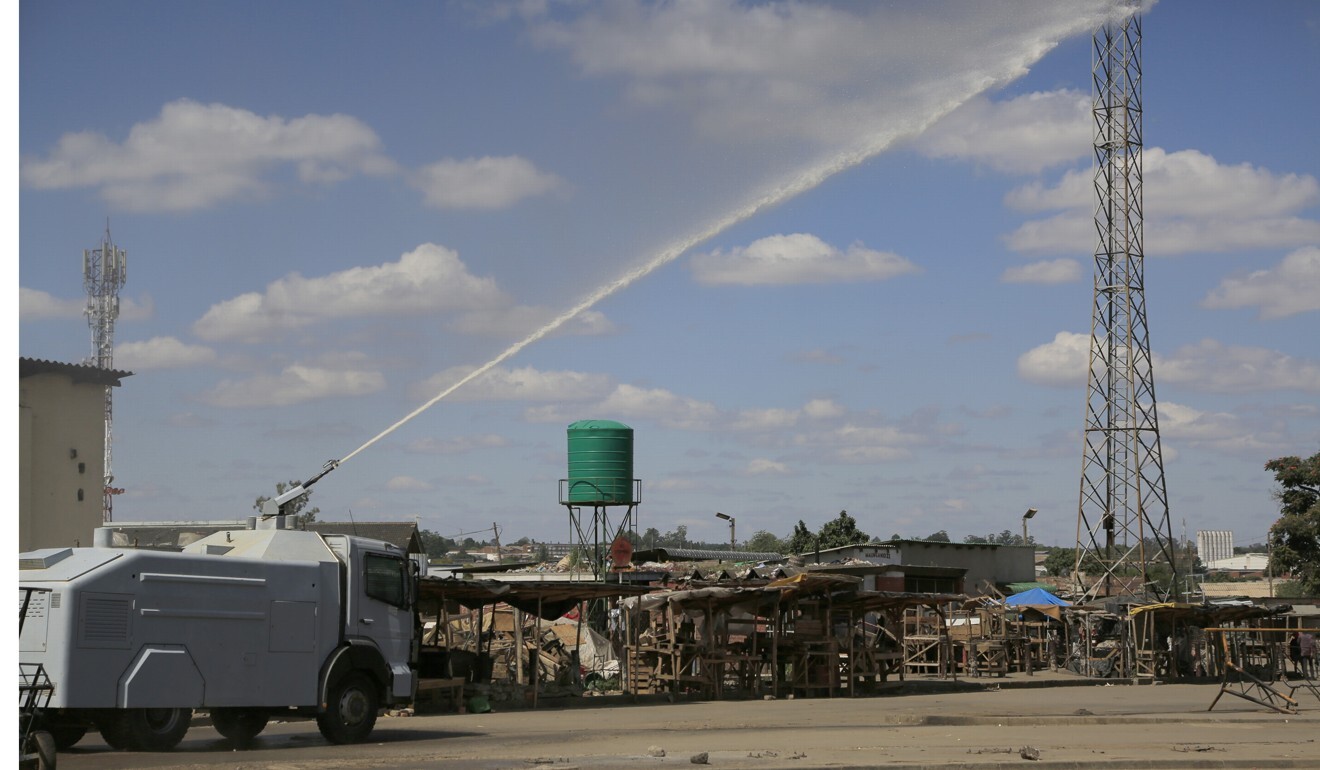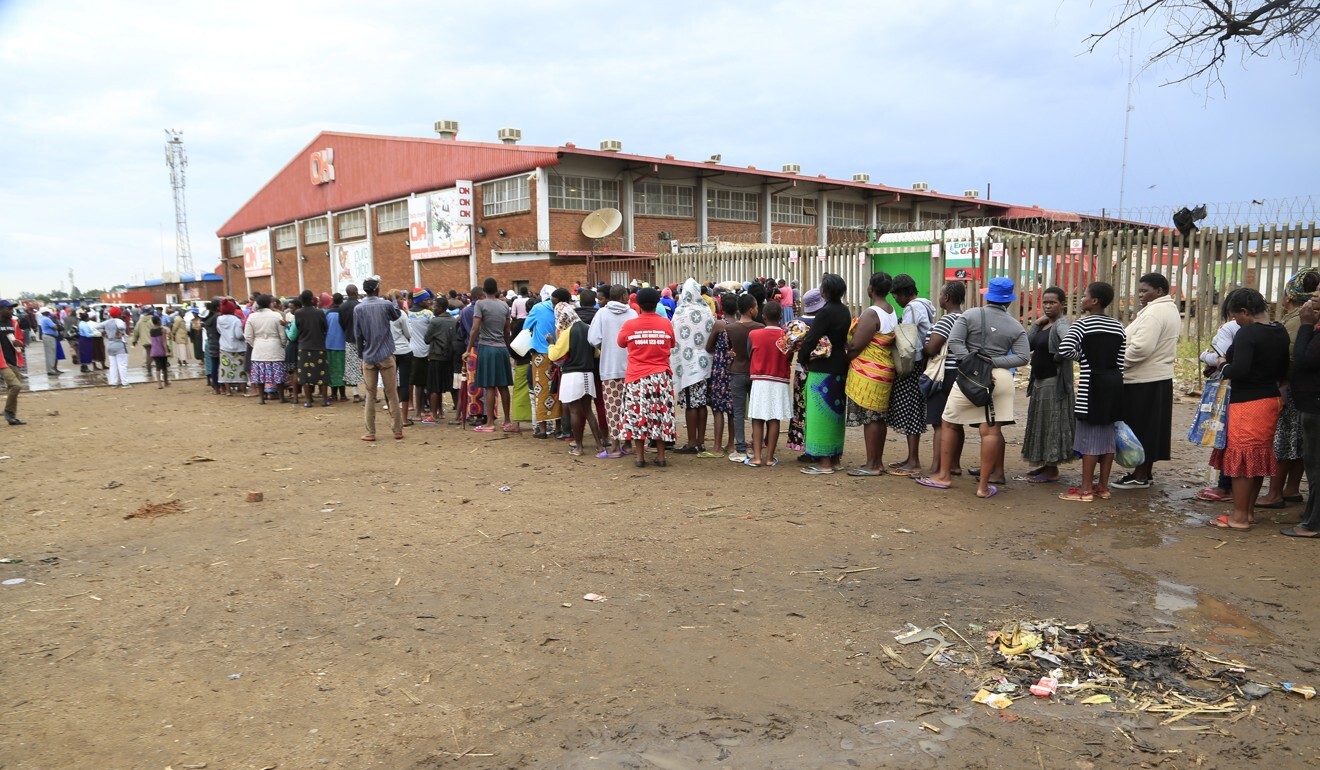
Coronavirus: in Zimbabwe, people risk Covid-19 death just to fetch water
- Spread of coronavirus will be harder to control without running water, essential for hygiene
- Zimbabwe’s public health system faces total collapse if most of population becomes infected
Dry taps are forcing residents in cities across Zimbabwe to spend time outside collecting water at community bore holes, instead of staying indoors for a 21-day coronavirus national lockdown.
Even as the country enters possibly the last days of isolation, bore holes have emerged as possible vectors for the spread of deadly Covid-19 disease, as urbanites, mostly women and children, are forced to disregard social distancing rules to fill buckets to take home.
The southern African country of 14.5 million people has so far recorded 23 cases and three deaths since global outbreak began, but the actual number could be much higher. Zimbabwe has only one public Covid-19 test centre, at a government hospital in the capital Harare, where over 600 tests have been carried out.
Zimbabwe’s public health care system, already under the strain of a crippled economy, faces shortages of basic drugs and lacks essential equipment and even running water. Health experts say Covid-19 will be harder to control in places without running water, and many people could die.
That’s a horrible scenario for people like Marian Chiroodza, who lives in Chitungwiza, a densely populated satellite town 30km southeast of Harare.

“It is a double-edged sword. If I stay home without water, I could still die from cholera or typhoid. I need water for cooking and for use in the toilet daily apart from other uses,” the 48-year-old mother of four said. “So, I have no choice but to patronise the bore hole every other day to fetch water because tap water scarcely comes.”
In Zengeza, another suburb in Chitungwiza, Cuthbert Ngonyama owns a bore hole and makes brisk business selling water to hordes of people.
No racism behind coronavirus protections, China assures African community
“People knock at my gate as early as 5am looking for water,” said Ngonyama, whose mini bus business has been on pause because of the lockdown.
“I am aware of the risk of handling money and meeting with people at a time of the pandemic, but I live in the community and I’m forced to help. I also need money to survive – 21 days without an income is equally a death sentence.”

Harare Mayor Herbert Gomba said the city’s decrepit water plants were under strain and could only supply 200 megalitres of water per day, instead of 1,200 megalitres needed for the 4.5 million people in the capital and surrounding towns.
“We have within our resources brought in bowsers, refurbished bore holes and written to government and donors to help us with bridging finance to mitigate the situation,” he said. Bulawayo, the country’s second biggest city, has since last week introduced a 108-hour water shedding programme due to critically low water levels in its dams. Some city residents have been told to wait until the next rainy season to receive water.
Africa’s coronavirus outbreaks seeded from Europe
Thembelani Dube, spokesperson of the Bulawayo Progressive Residents Association, said the water- rationing exercise was forcing residents to look for water in public spaces, defeating the purpose of lockdown and social distancing.
“The water shedding schedule means that each suburb is receiving water after four-and-a-half days. Some suburbs are not receiving water to all although they get water from city bowsers after every few days. Now we are faced with Covid-19 and are expected to wash our hands with running water but there is no water to do so because of the strict water rationing measures in the homes,” Dube said in an interview.

In the past week, four residents’ associations in the towns of Harare, Chitungwiza, Masvingo and Hwange have gone to court to force municipal authorities to make water available during the lockdown and until after the coronavirus is under control.
The Community Water Alliance, a Harare based civic organisation claims that over 50 per cent of the country’s people do not have access to safe potable water.
Washing hands and surfaces frequently with soap under running water can help reduce the risk of contact exposure to the virus. In the absence of water, some in Zimbabwe have turned to making their own sanitisers with household bleach and dishwashing liquid.
West African nations hope experience fighting Ebola will help them
The coronavirus arrived late in Africa, but is slowly taking hold with over 15,000 cases and some 800 reported deaths across the continent.
While much of the developed world waited weeks to begin taking action, countries in Africa rapidly shut borders and banned mass gatherings.
Mauritius, Rwanda and Tunisia were the first to impose full lockdowns.
South Africa is the biggest economy on the continent to completely confine its citizens, while Nigeria imposed lockdowns on Lagos – the continent’s largest city – and its capital Abuja, which on Monday were extended for another two weeks.
It is unclear if Zimbabwe’s government will extend the country’s 21-day lockdown, which is due to end Sunday.
“While we may not be well prepared for Covid-19, and we are entering winter, I don’t think the impact will be too great and that’s because the weather will help us. Our winter is not too harsh,” said Walter Chingwaru, an expert in biomedicine and microbiology at Zimbabwe’s Bindura University of Science.
A scenario modelling study by the Imperial College of London at the end of March said Zimbabwe could experience a spike in infections of between 8.3 million and 13.9 million within 250 days, resulting in as many as 37,000 deaths.
“In the circumstances of the collapsed health system in Zimbabwe today, the first conclusion from the study is that the anticipated requirement for hospital and critical care does not simply exist,” it said. “As a result, we expect a higher mortality rate than the model suggests.”
Additional reporting by Agence France-Presse

